Born: Oswiecim, Poland, 9 April 1898
Profession in country of origin: Furrier and travelling salesman
Arrived in Britain as a refugee from Germany on 31 August 1939
Documents
[Hand-written addition: Cat 23 Committee release auth Cat 23. 01.09.1941 without restriction] Male enemy alien - Exemption from internment - Refugee Surname: Mendzigursky Forename: Peisech [Added: Released 08.09.1941 Interned Circular 21.06.1940] Alias: - Date and place of birth: 09/04/1898 in Oswiecine Nationality: Stateless Police Regn. Cert. No.: 768 255 Home Office ref: C 2775 [crossed out by hand; replaced by M20417] Address: Kitchener camp, Richborough, Sandwich, Kent [hand-written addition: Address after release: - 164, Cheetham Hill Road, Manchester] Normal occupation: Commercial traveller Present occupation: - Name and address of employer: - Decision of tribunal: Exempted "C" Date 04.10.1939 Whether exempted from Article 6(A): Yes [later crossed out in red] Whether desires to be repatriated: No Tribunal District: Richborough Camp Tribunal 4
Source: National Archives, Home Office: Aliens Department: Internees Index, 1939-1947.
[Hand-written addition] Cat 23 C'ttee release Auth Cat 23. 01.09.1941
Released 08.09.1941
Report of Internment
Police: Salford
Name of Alien: Mendzigursky, Peisech
Nationality: Austrian
Date of birth: 09.04.1898
HO Number: M 20417
Interned on: - Hutchinson
Handed to: -
Reason for internment: Circular 21.06.1940
Source: National Archives, Home Office: Aliens Department: Internees Index, 1939-1947.
CATY 23 CTTE Mendzigursky
Peisech
M 20417
Released 08.09.1941
Recommended 14.08.1941
Release Auth Cat 23. 01.09.1941
without restriction
Source: National Archives, Home Office: Aliens Department: Internees Index, 1939-1947.
Editor’s note: We are not allowed to reproduce National Archives (UK) images, but we are permitted to reproduce the material from them, as shown above.
To view the following image, please click to open in enlarged full form
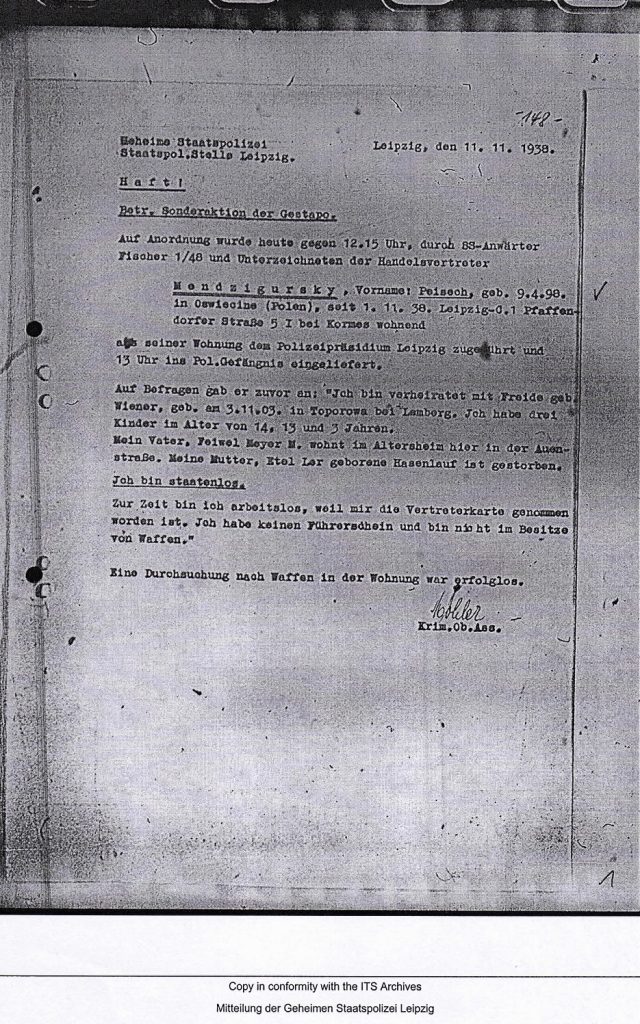
Arrested! Subject: Gestapo Special Action Following orders, today at about 12.15 pm, by Fischer and signed by the commercial agent Mendzigursky, First name: Peisech, born 9.4.98 in Oswiecim (Poland), living since 1st November 1938 with Kormes at Pfaffendorferstrasse 5, 1stfloor, was removed from his residence by the Leipzig police and taken to the Police Prison around 13 hours. When questioned, this was his answer: “I am married to Freide, nee Wiener, born 3 November 1903 in Toporow in Lemberg. I have 3 children, aged 14, 13 and 3. My father, Feiwel Meyer M., lives in the old age home here in Auenstrasse. My mother, Ettel Lea, nee Hasenlauf, is deceased. I am stateless. At this time I am out of work, because my business permit was confiscated. I have no driver’s license and I am not in possession of a weapon. No weapons were found during a search of his residence.
The above translation and submission by Judith Elam, granddaughter of Peisech Mendzigursky
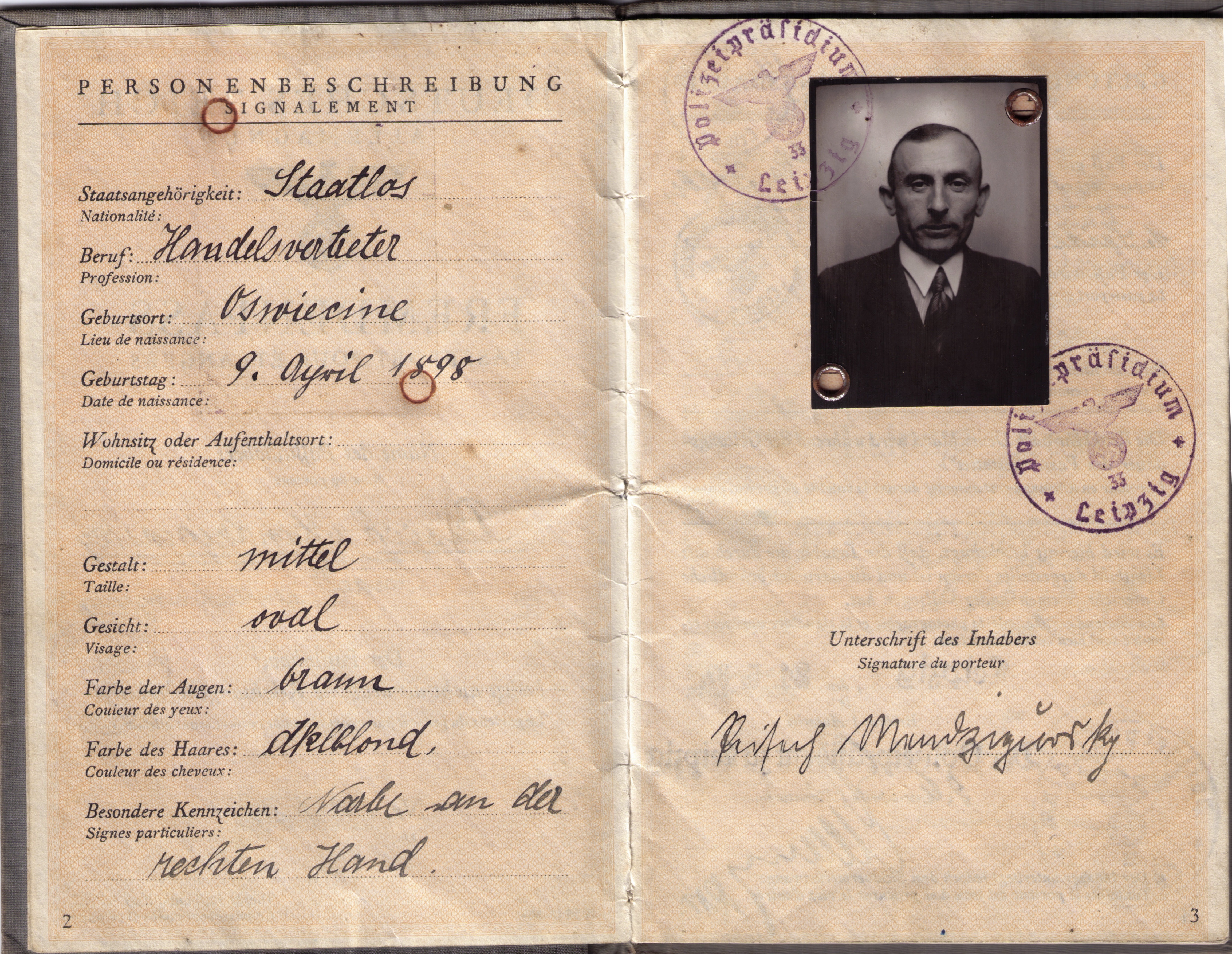
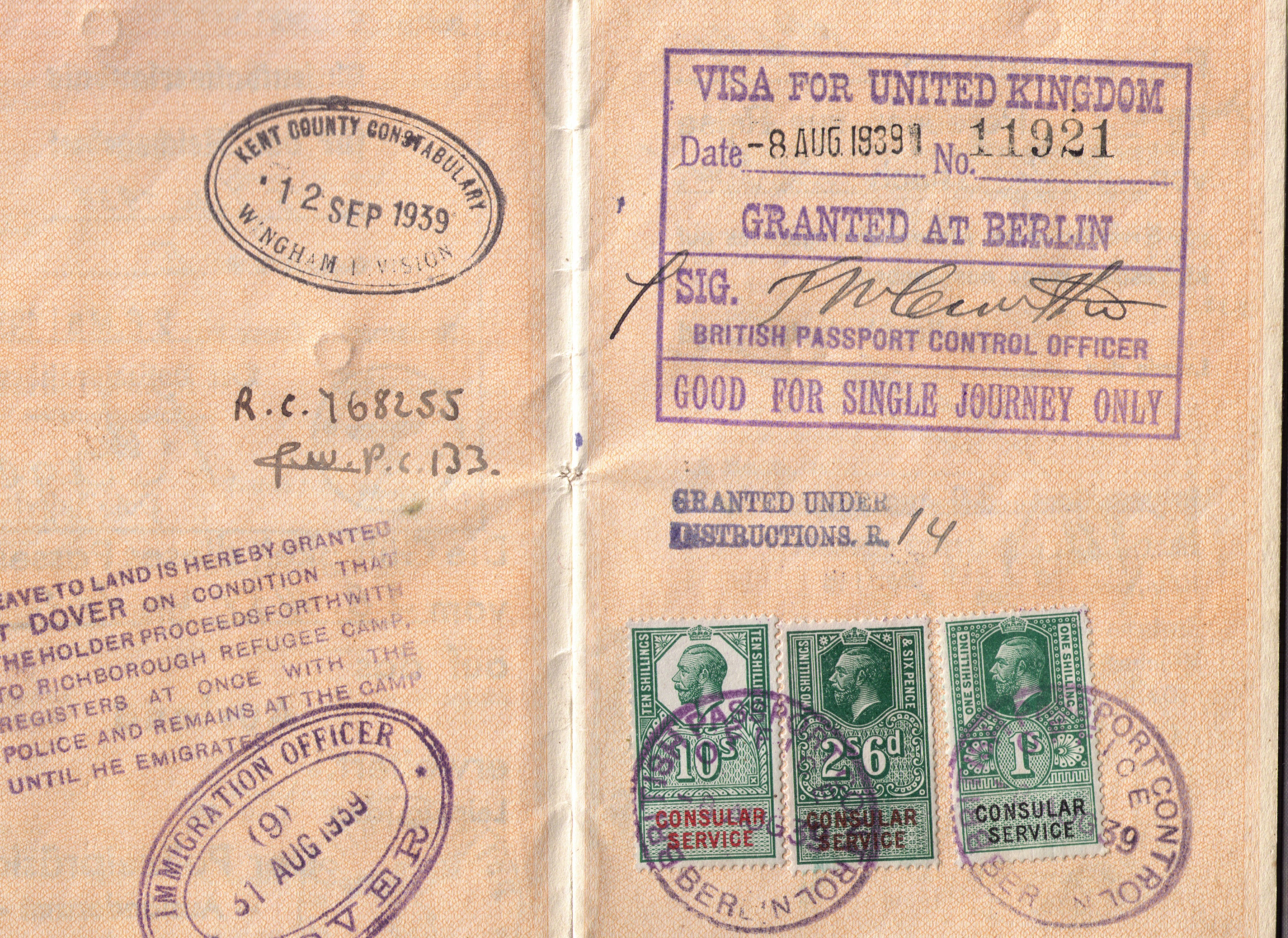
To view the following images, please click to open in enlarged full form
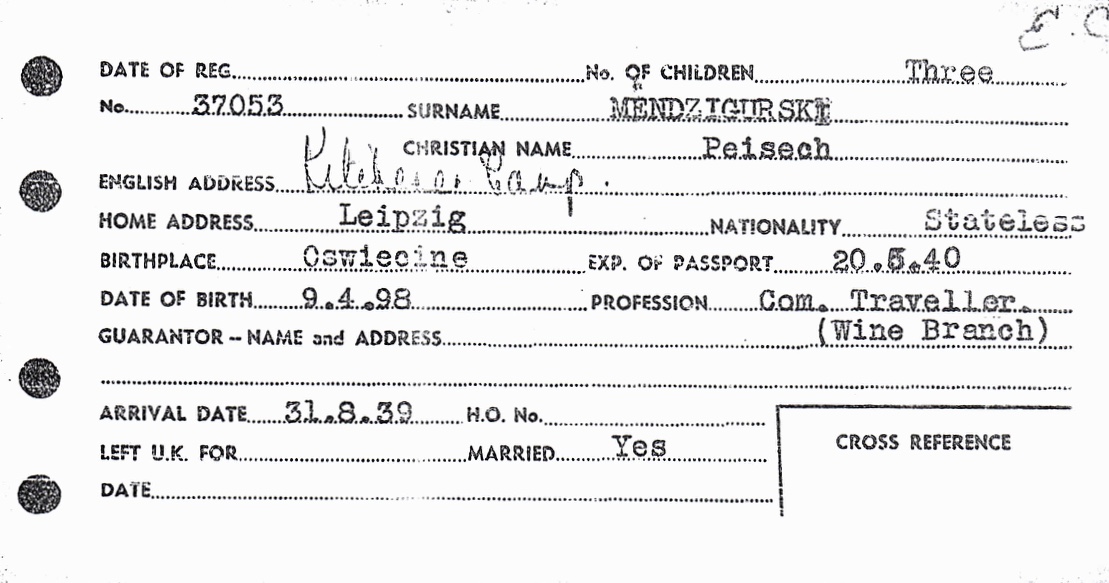
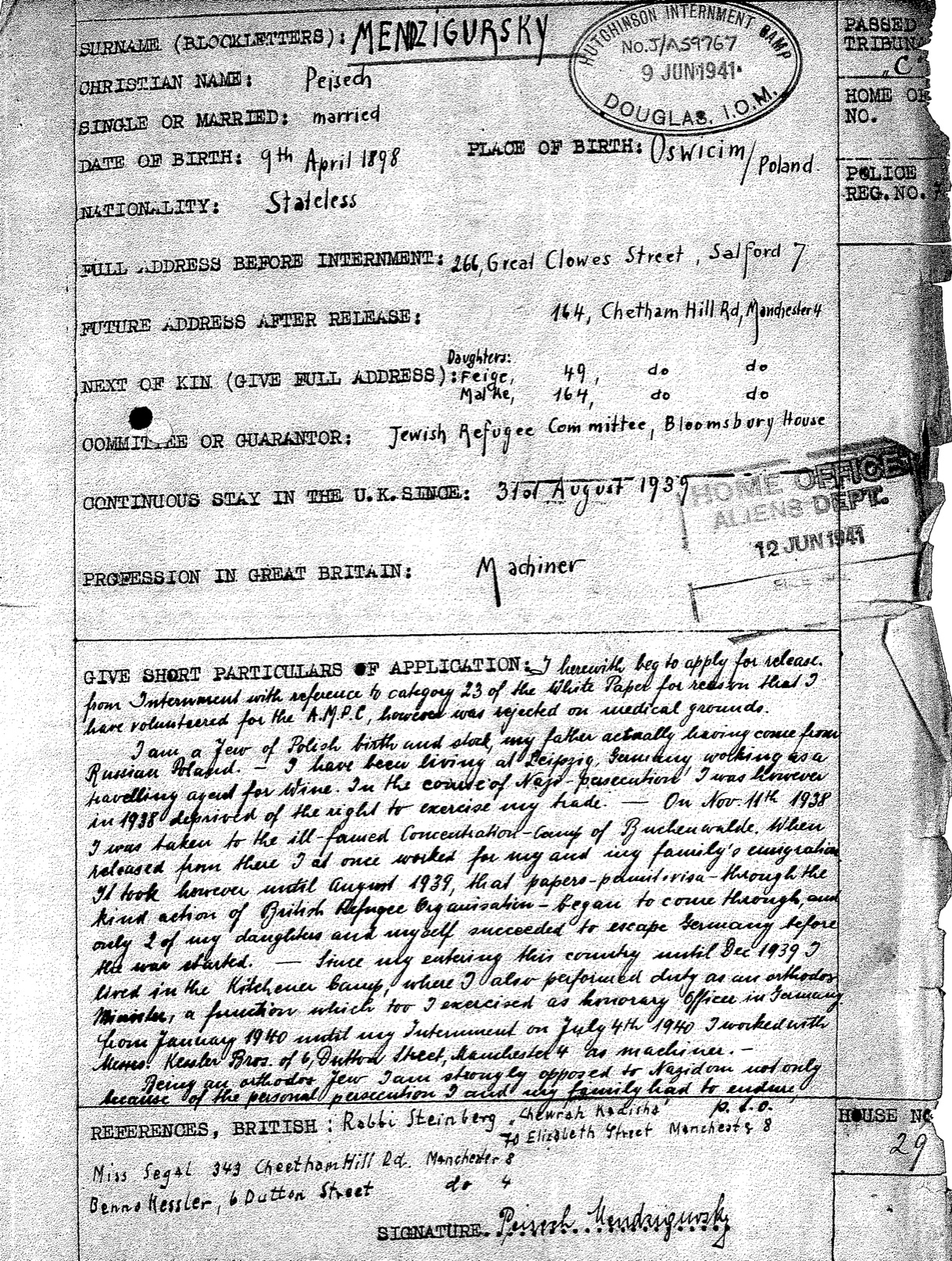
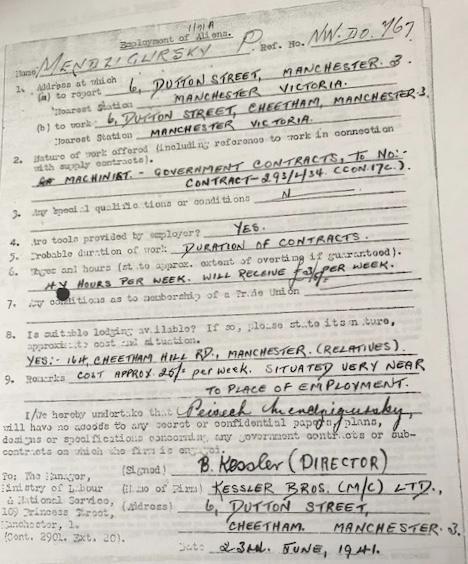
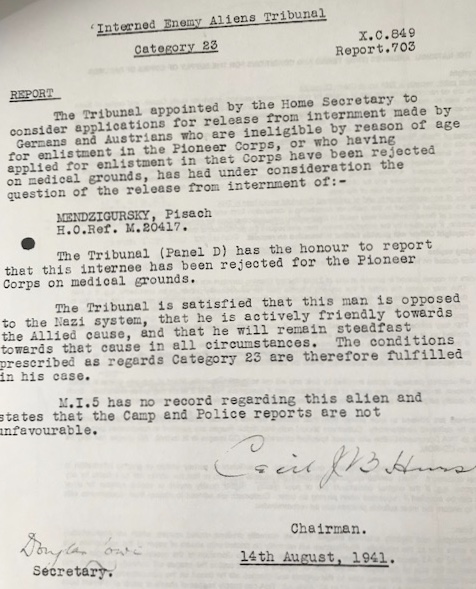
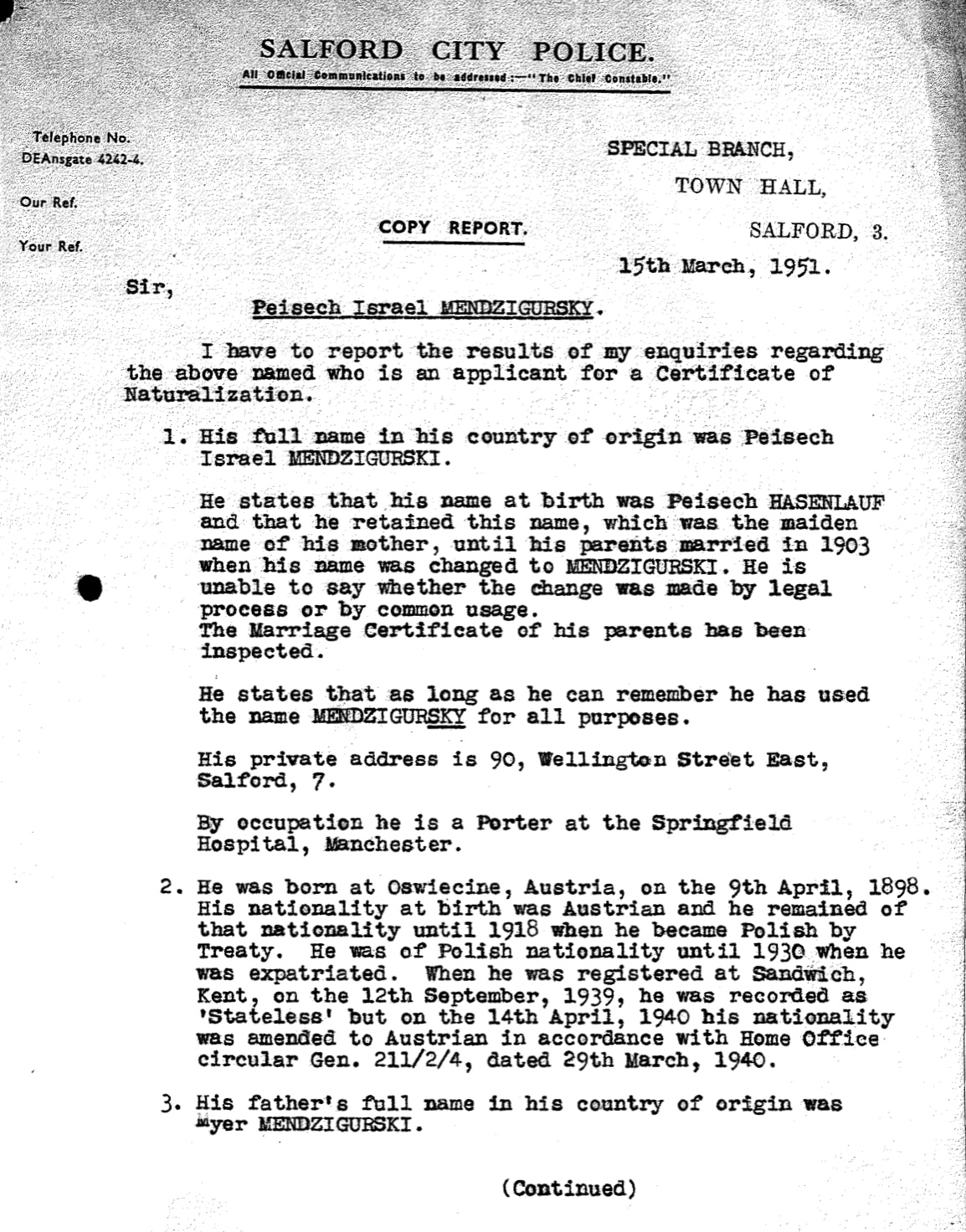
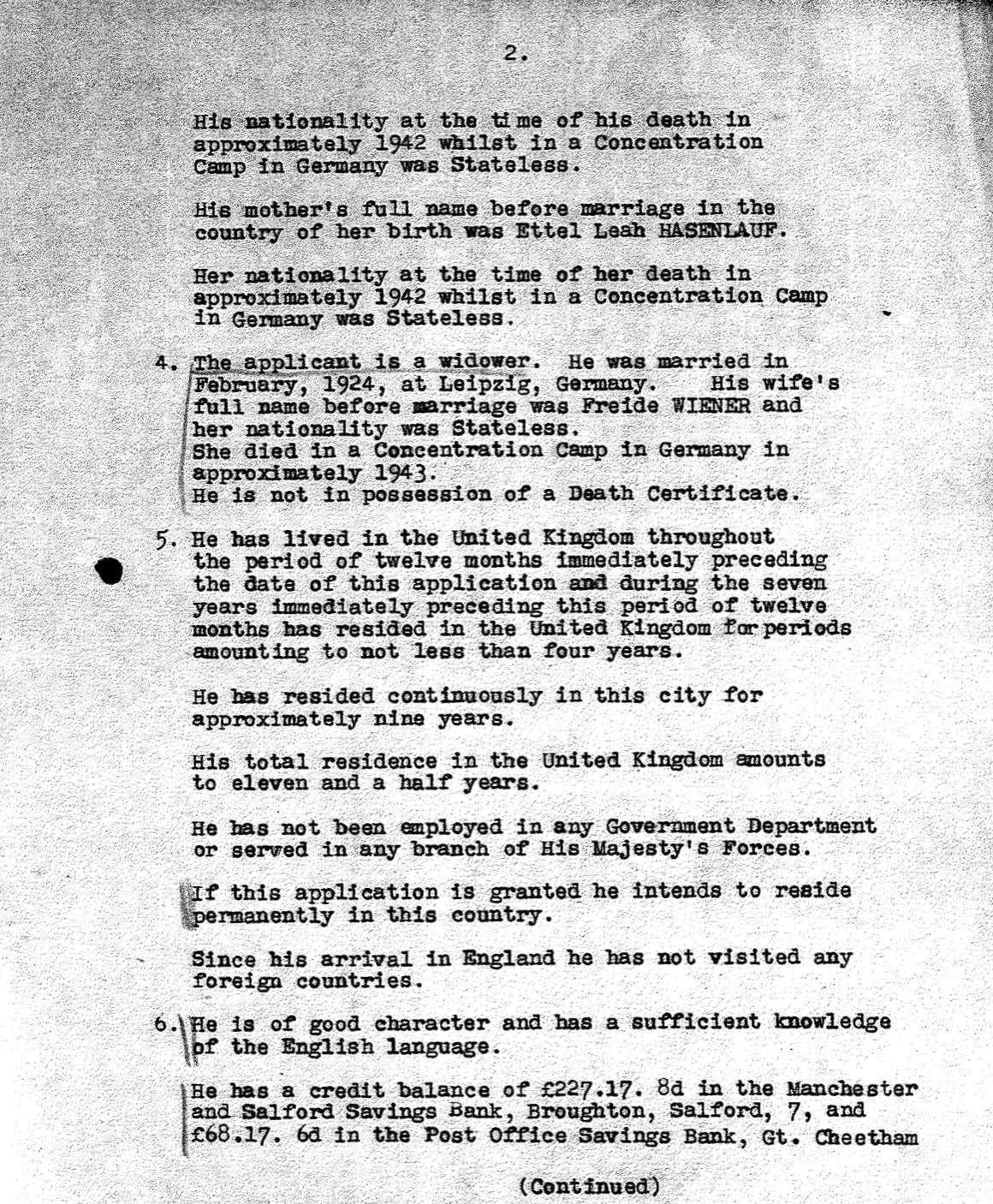
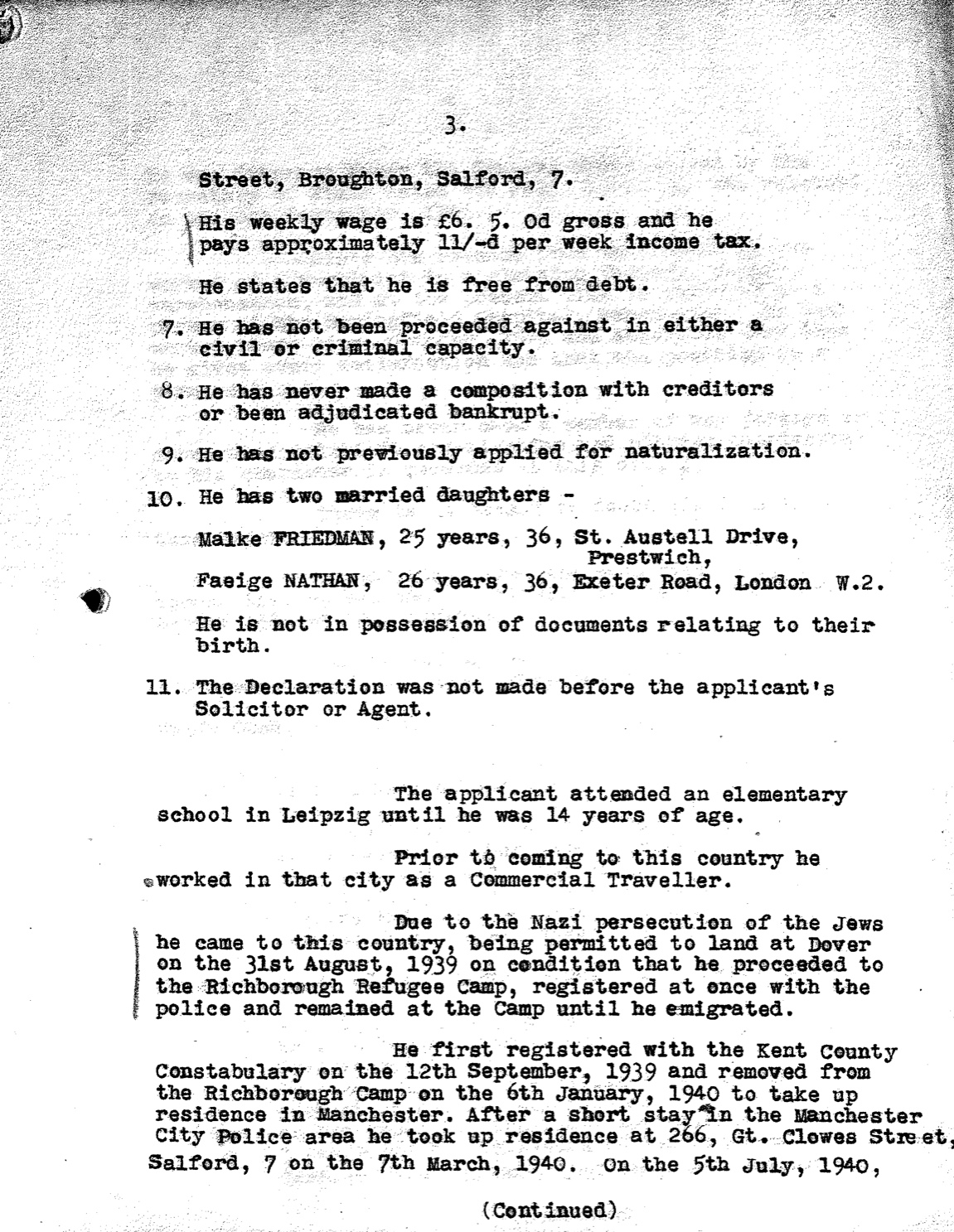
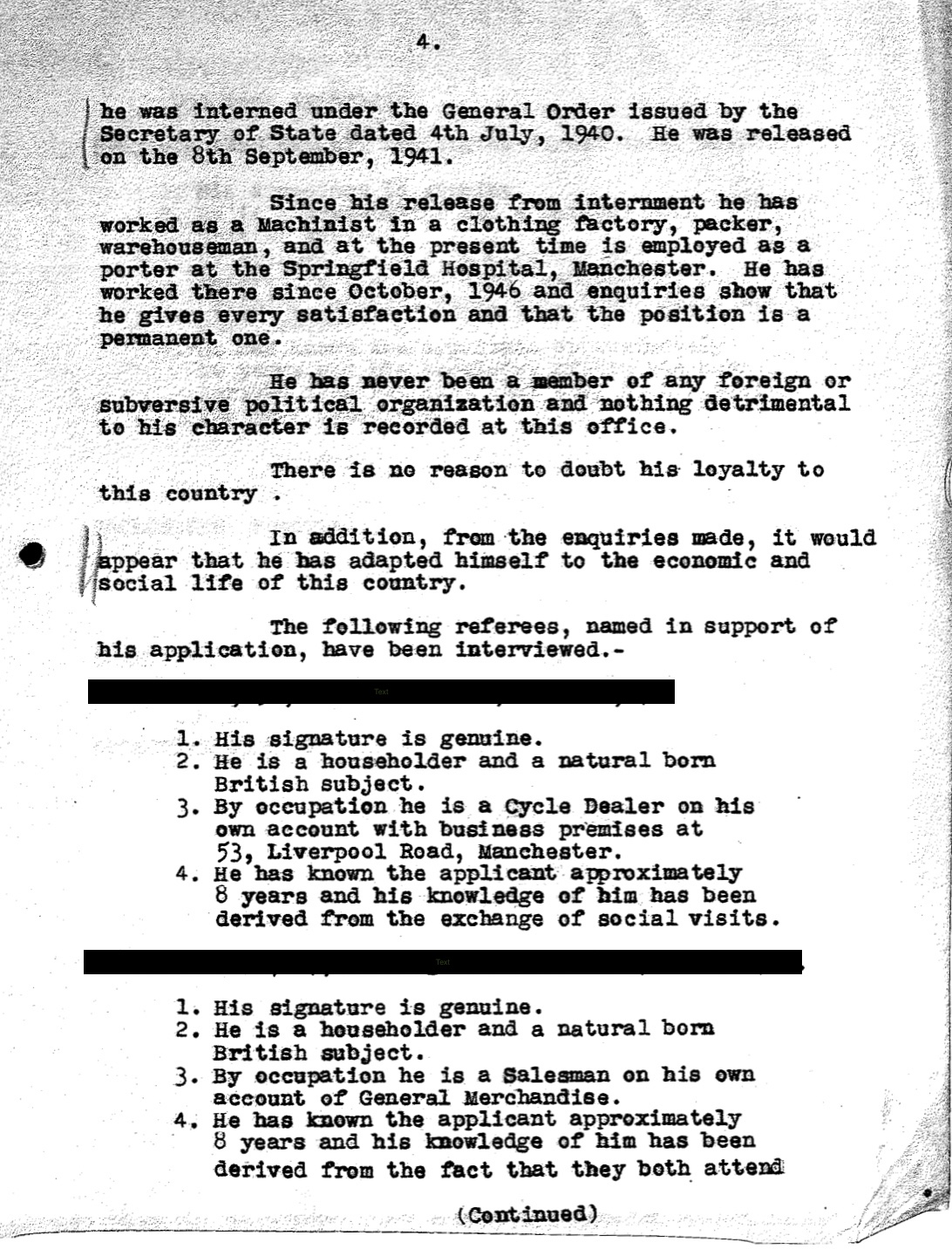
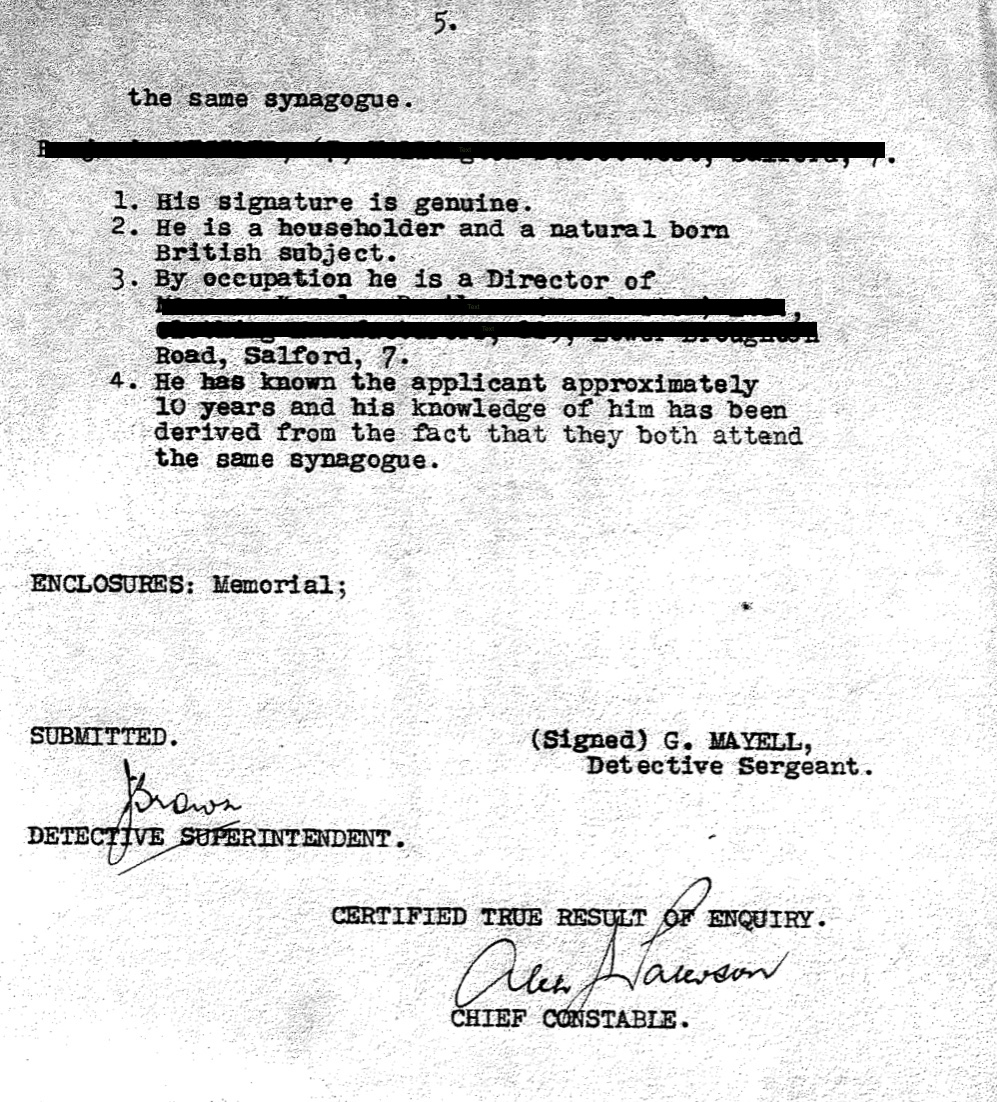
Submitted by Judith Elam for her grandfather Peisech Mendzigursky
Letters
To view the following image, please click to open in enlarged full form
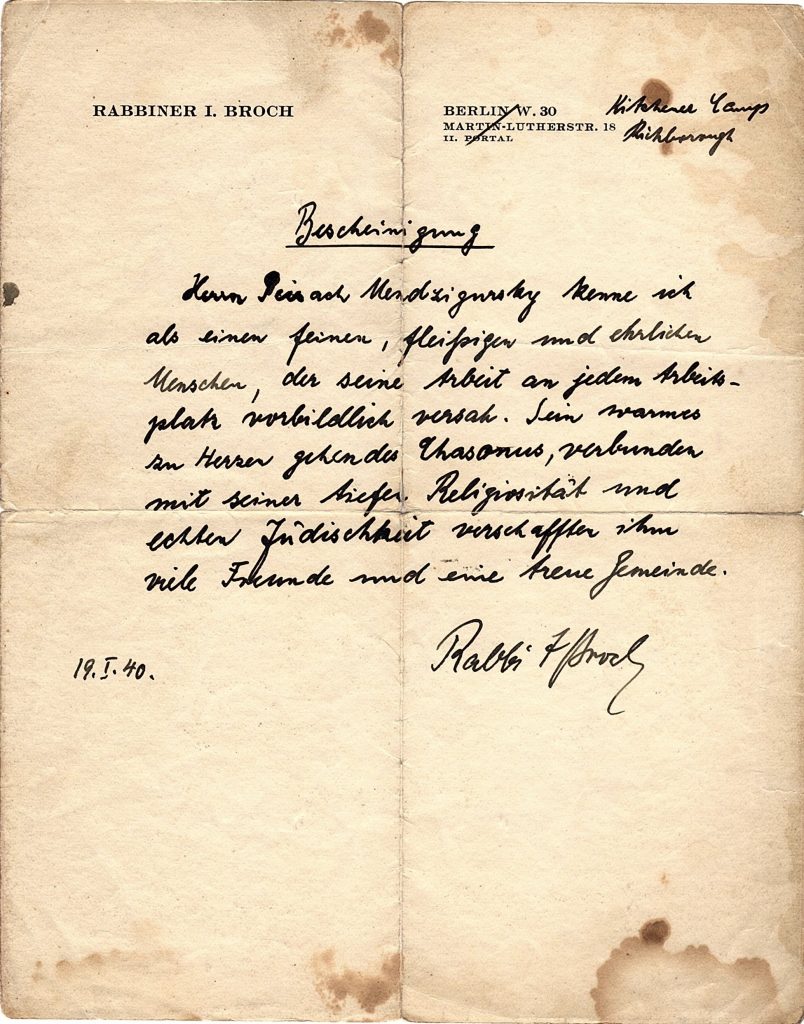
Certificate I know Mr Peisech Mendzigursky as a fine, diligent, and honest man, who performed his work at all workplaces in exemplary fashion. His warm, heart-touching chasonus, combined with his deep religiosity and genuine Jewishness, gain him many friends and a loyal community. Rabbi I Broch
Translation and submission by by Judith Elam for her grandfather Peisech Mendzigursky
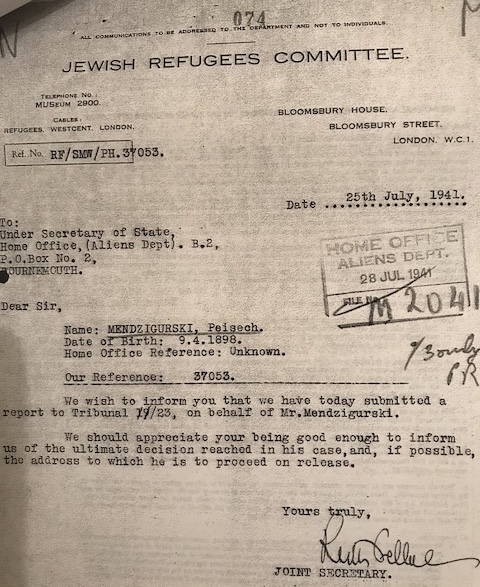
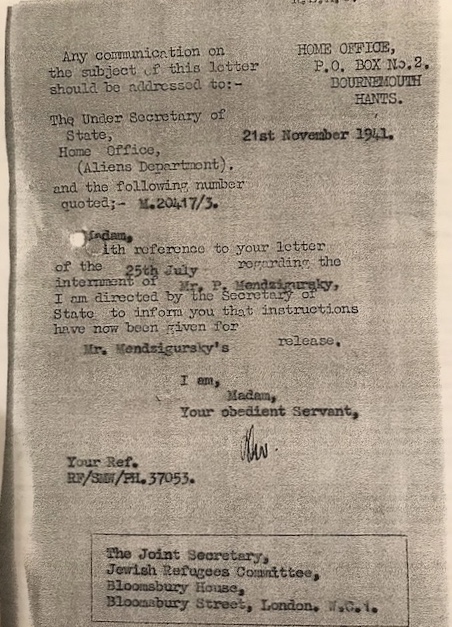
Memories
My grandfather, Peisech Mendzigursky, was born in Oswiecim (Auschwitz) on 9th April 1898. He was named Peisech because he was born during Peisech (Passover). The surname was originally Miedzygorski, but it became Germanized when Peisech’s parents fled the pogroms with their five children to Leipzig, Germany, at the end of 1903. Peisech’s father, Meier Feiwel Mendzigursky, was a furrier and also a well-known torah teacher in Leipzig. The family was very religious.
Peisech was also a furrier at first, but by the time he married my grandmother, Frieda Wiener, in 1924, he was a “traveling salesman,” selling non-kosher wines and silver cutlery. The couple had four children: my mother Feige (later known as Fay), Malke (later known as Margo), Adolph, and Etti Lea. The family lived an orthodox life, my mother remembering Fridays, when her mother Frieda would make her own kosher wine from raisins, and string the home-made lochschen out over the dining room chairs! Frieda also wore trousers and smoked cigarettes, which was unheard of for religious Jewish women at that time, and she would send my mother out to buy cigarettes for her on Shabbat!
During Kristallnacht, my grandfather Peisech hid upstairs in the attic, my terrified mother climbing the ladder and taking him up food and sitting with him for hours, while they came looking for him. He then thought the danger had passed and came down from the attic, but on 11th November, he was arrested by the Leizpig police and taken the next day to Buchenwald concentration camp. He did nothing but chop wood all day for four weeks. He was then released, and made his way back to Leipzig, arriving black and blue, as the Nazis had “given him something to remember them by.” He was also ordered to leave Germany as soon as possible, or they would “beat him to death next time.”
And so Peisech began the long and arduous process of applying for the visas for six people – he, Frieda, and their three daughters, and his father Meier Feiwel, who by this time was living in the Jewish old age home in Leipzig. (My great-grandmother had died in 1935, and little Adolph had passed away at age six from pneumonia). The family hoped to be taken in by their Miedzygorski cousins – the Bookbinder family of Cheetham Hill, whose matriarch was Reisel Devora Miedzygorski Bookbinder, my grandfather’s aunt, so the Bookbinders also had to provide the necessary guarantees in order for the family to be allowed into Britain.
After eight long months only three visas came through – for my grandfather, my mother, and her sister Margo. My grandparents then made the agonizing decision of sending away those who had visas, in the hope and belief that the other three would follow in a week. Tragically, that was to be the last time they saw one another. Frieda and seven-year-old Etti Lea were deported to Riga ghetto in January 1942, and probably froze to death en route in the cattle truck. Meier Feiwel was deported to Theresienstadt in September 1942 and perished five months later of “old age and typhus.”
Peisech Mendzigursky arrived at Dover on 31st August 1939, just one day before Germany invaded Poland. One day later, and he definitely would have been turned back. He had supposedly obtained a visa to travel on to Shanghai, which may have been why he was allowed into Britain. He went immediately to Kitchener Camp, as per the conditions of his admission into the country, and spent the next four months there. He was an unofficial “camp minister.” He had a beautiful voice and was a cantor – a chazzan.
In January 1940, Peisech started working as a machinist for Benno Kessler, a British-born Jew, who had a sewing factory. He was living in Broughton. His two teenage daughters, Fay and Margo, were working as machinists too. Two months later they received word from Frieda in Leipzig, that “all was fine,” which was not the case at all. She was already doing slave labour in a munitions factory. Over the next year only two more short postcards were received from Frieda, via the International Red Cross, then nothing further. She never talked about herself, just about her two beloved daughters whom she missed terribly and was worried about.
In July 1940 Peisech was interned again, this time for 14 months, first at Warth Mill and then at Hutchinson Internment Camp, Douglas, Isle of Man. This was the period when it was decided that all Jewish refugees from Germany should be interned as “enemy aliens.” Peisech again served as an “acting rabbi.” In the meantime, his employer, Benno Kessler, had lost all his six employees to internment, and was desperate to fulfill his government contract. So he appealed for Peisech and the others to be released, writing to several State departments. But to no avail. Peisech also tried to seek release by applying to enlist in the Pioneer Corps, but was rejected for “medical reasons.”
After his release, Peisech returned to Benno Kessler, working as a machinist, packer, and warehouseman. In October 1946 he was overseeing the kosher kitchen at Springfield Hospital. He became a British citizen in 1951.
Since I was born in London, I did not really know my grandfather very well, but I know he remained deeply religious and committed to his Judaism his entire life, despite the fact, or maybe because of the fact, he had lost his father, wife, and seven-year-old daughter to the Holocaust, a young son at age six, and his daughter Margo to stomach cancer in 1960.
Peisech was a very active member of the synagogue and continued as a chazzan with his beautiful voice. He was known for his quiet demeanour and smile, and much loved and respected by his Bookbinder cousins.
Peisech died on 27th April 1962 of a stroke, and is buried at Phillips Park Cemetery, Whitefield.
Written by Judith E. Elam for her grandfather, Peisech Mendzigursky
Photographs
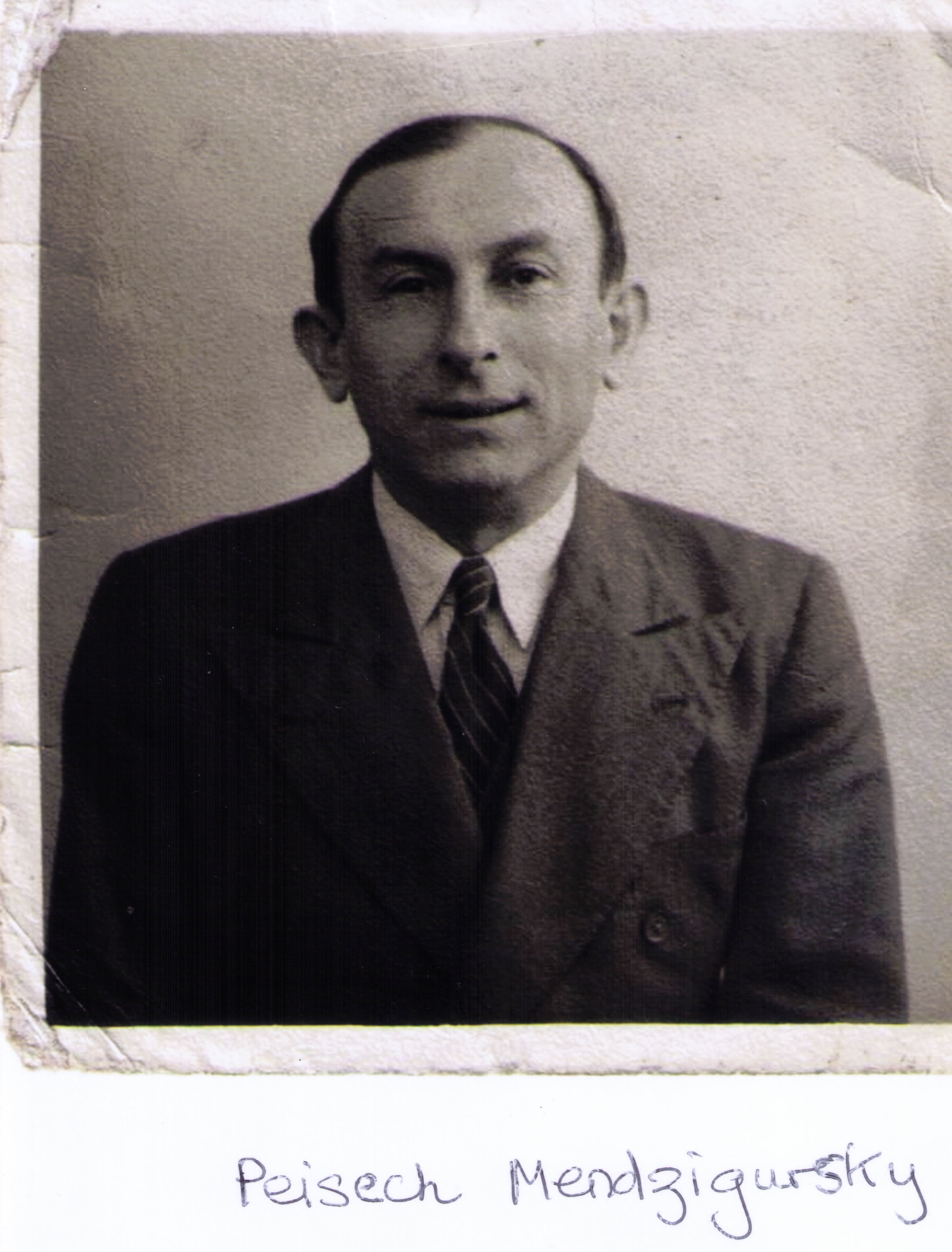
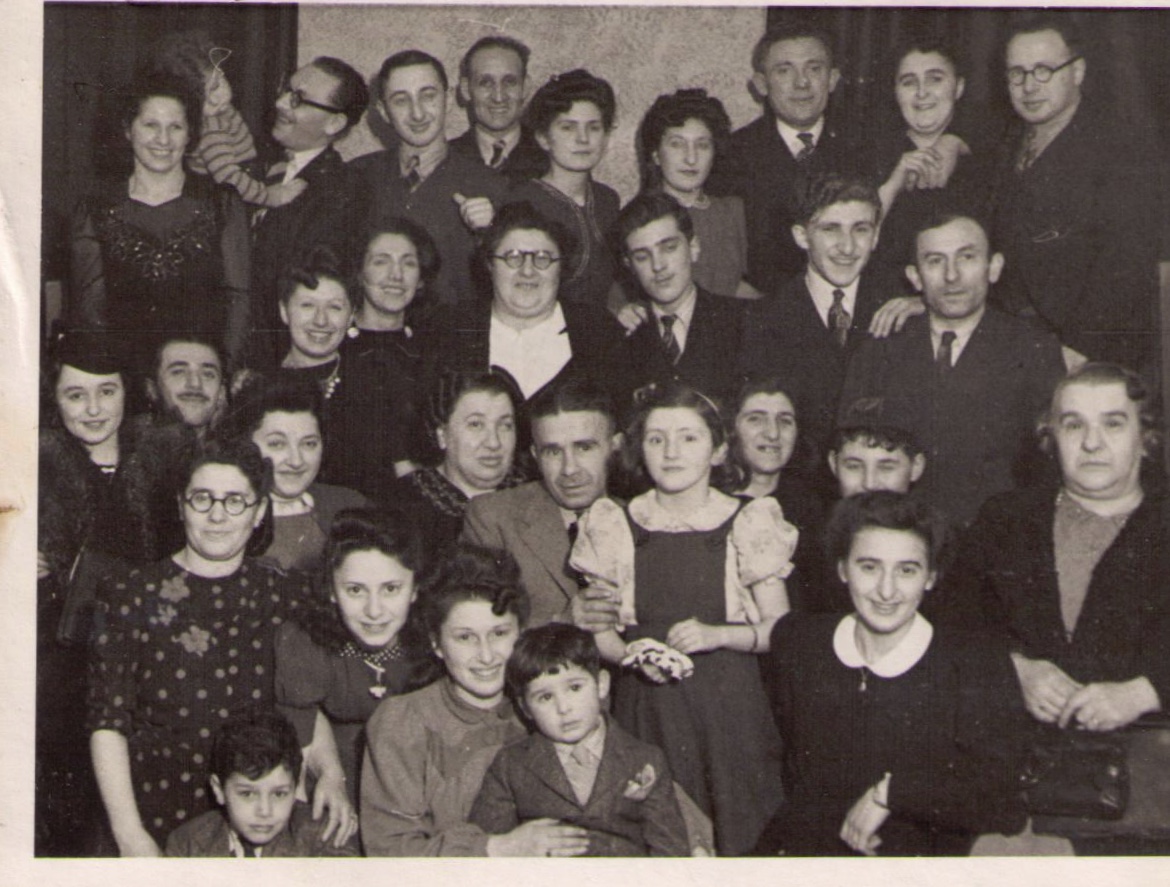
If anyone has any information about Peisech Mendzigursky, whom the family believe was one of the acting rabbis – a chazzan – in Kitchener, please get in touch.
